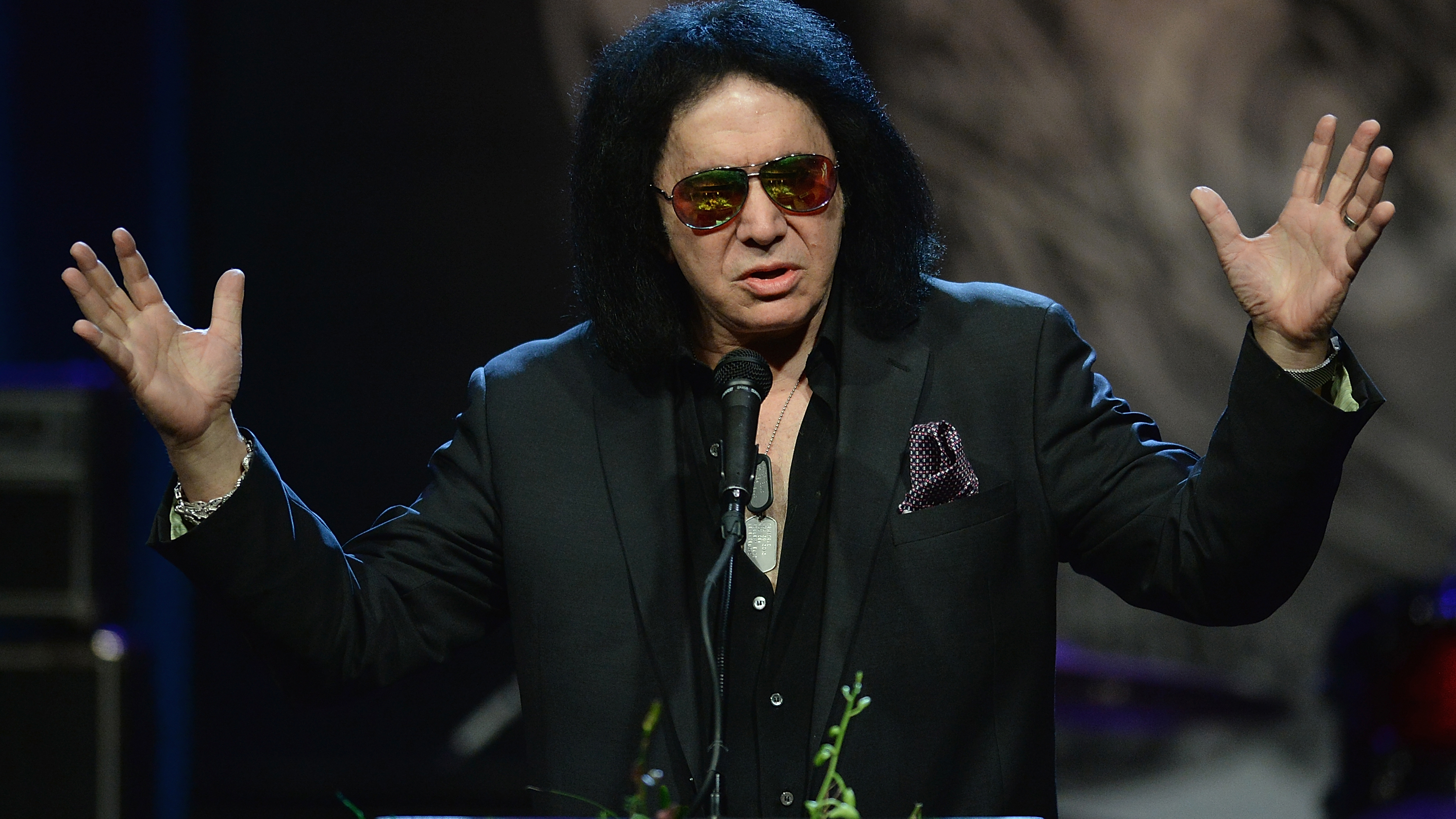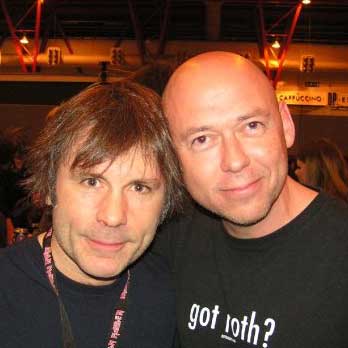“Without Chuck Berry there wouldn't have been The Beatles or the Stones. But none of those guys attended his funeral, which I thought was very strange”: Gene Simmons recalls his eulogy for a rock ’n’ roll legend
Plus: the shocking stories Simmons heard from his former partner Diana Ross

Want all the hottest music and gear news, reviews, deals, features and more, direct to your inbox? Sign up here.
You are now subscribed
Your newsletter sign-up was successful
When Kiss star Gene Simmons went to the funeral of Chuck Berry, he hadn’t planned on making a speech – but that’s how it turned out.
And as he now tells MusicRadar, he was disappointed that other major rock artists were not present at the ceremony.
Chuck Berry died aged 90 on 18 March 2017. The memorial service for Berry was held on 9 April at the Pageant Concert Hall in St. Louis, Missouri.
Simmons recalls: “I was the guy that did the eulogy at Chuck Berry's funeral, but it was not planned or anything. I attended, and the family came out to me and said, ‘Would you like to say a few words on Chuck's behalf?’
“Of course I said yes, but as I walked up on to the stage I didn't have a clue what I was going to say.
“It was an open casket funeral, and Chuck was laying there with his guitar.
“When I started talking I realised the enormous impact of those early forefathers of rock ’n' roll. As soon as I said Chuck’s name, I was overcome with emotion.”
Want all the hottest music and gear news, reviews, deals, features and more, direct to your inbox? Sign up here.
In that moment, Simmons was reminded of his earliest experiences of living in America, having emigrated from Israel with his mother when he was eight years old.
“One of the first pieces of music I ever heard when I came to America was a Chuck Berry song,” Simmons says. “You’ve got this eight year old kid who couldn't speak a word of English and he starts hearing this music and his body starts moving. So my first introduction to music was Chuck Berry.”
Simmons gave a moving eulogy for Berry.
It was only after the ceremony that he thought about the many musicians who had been influenced by Berry but had not attended this service.
Simmons says simply: “Without Chuck, there wouldn't have been The Beatles or the Stones, but none of those guys attended his funeral, which I thought was very strange.”
Simmons has the greatest admiration for The Beatles. “They changed my life,” he says. “But for me, prior to hearing The Beatles, it was black music that made me want to move my hips. It was Little Richard Fats Domino and Chuck Berry.
“And then I heard The Beatles and I said, ‘Oh, wait a minute. They're taking a bit of this and a bit of that and so on.’”
Simmons says that his love for black music shaped his politics as a young man in the ’60s.
He recalls: “The civil rights movement was happening in America, and I realised there were a lot of white folks who were resisting that – and yet they loved black music.
“Chuck Berry, Little Richard, Fats Domino – they played in front of the children of former slave owners and opened doors in ways that marches never could. So Chuck had an enormous impact on American life.”
Simmons says now that he also learned much from his romantic involvement with another black American music icon, Diana Ross.
“I was lucky enough to know Diana,” he says. “We spent a few years together. An amazing woman, and she told me stories from when she first had hits with the Supremes.
“This was the early ’60s, and the Supremes had six consecutive number one singles.”
(Note: it was in fact five US No.1s in a row that the Supremes had in 1964. The songs were Where Did Our Love Go, Baby Love, Come See About Me, Stop! In The Name Of Love and Back In My Arms Again).
Simmons continues: “So for that year, the Supremes were bigger than The Beatles, and they went on a tour in the American Southern states.
“When they did the shows it was a mixed audience, everybody existed together. But the Supremes were not allowed to stay in the regular hotels. They had to go to what was called coloured hotels. And on the way out, there were bullet holes in the tour bus.
“But some of those same people who had racist tendencies loved the music. It's a strange world, but there you go.”

Paul Elliott has worked for leading music titles since 1985, including Sounds, Kerrang!, MOJO and Q. He is the author of several books including the first biography of Guns N’ Roses and the autobiography of bodyguard-to-the-stars Danny Francis.
You must confirm your public display name before commenting
Please logout and then login again, you will then be prompted to enter your display name.

